
PHARMACOECONOMICS
Scope & Guideline
Empowering informed decisions in healthcare economics.
Introduction
Aims and Scopes
- Economic Evaluation of Health Technologies:
The journal publishes studies that evaluate the cost-effectiveness of various health interventions, including pharmaceuticals, medical devices, and healthcare services, using methodologies such as cost-utility analysis, cost-effectiveness analysis, and budget impact analysis. - Modeling Approaches in Health Economics:
A significant focus is on the development and application of various modeling techniques, including Markov models, discrete event simulation, and probabilistic modeling, to assess long-term outcomes and economic impacts of health interventions. - Patient-Centered Outcomes and Quality of Life:
Research related to the measurement of health-related quality of life (HRQoL) and patient preferences is prominent. This includes studies on utility measures like EQ-5D and their application in economic evaluations. - Real-World Evidence and Data Utilization:
The journal encourages the use of real-world data to inform economic evaluations and policy decisions, emphasizing the relevance of real-world evidence in assessing the economic impact of interventions. - Interdisciplinary Approaches to Health Economics:
It promotes an interdisciplinary perspective, integrating insights from clinical research, epidemiology, health policy, and behavioral economics to enhance the depth and applicability of economic evaluations.
Trending and Emerging
- Value-Based Healthcare and Pricing Models:
There is a growing emphasis on value-based healthcare frameworks that assess the value of interventions in terms of outcomes relative to costs. This trend reflects the shift towards outcome-oriented pricing models in the healthcare industry. - Equity and Social Determinants of Health:
Research addressing health equity and the social determinants of health is gaining traction, emphasizing the importance of considering how economic evaluations can impact diverse populations and promote equitable healthcare access. - Integration of Real-World Data:
The use of real-world data in economic evaluations is on the rise, highlighting the importance of incorporating actual patient outcomes and resource utilization into cost-effectiveness analyses. - Patient and Stakeholder Engagement:
There is an increasing focus on involving patients and stakeholders in the economic evaluation process to better capture preferences and improve the relevance of health technologies to end-users. - Innovative Methodological Approaches:
Emerging methodologies, such as machine learning and advanced statistical techniques, are being applied to economic evaluations, enhancing the robustness and precision of analyses in complex healthcare environments.
Declining or Waning
- Traditional Cost-Effectiveness Analysis:
There is a noticeable reduction in studies solely focused on traditional cost-effectiveness analysis without considering broader implications, such as equity or long-term societal impacts. This indicates a shift towards more comprehensive evaluation frameworks. - Pharmacoeconomic Evaluations of Older Therapies:
Research on older therapies appears to be declining as newer, more innovative treatments emerge. The focus is shifting towards assessing the economic impact of cutting-edge therapies and technologies rather than established treatments. - Narrowly Focused Economic Models:
The journal has seen fewer publications that rely on narrowly focused economic models with limited scope. There is now a trend towards more complex models that account for a variety of factors, including patient heterogeneity and real-world complexities. - Sole Emphasis on Cost Minimization:
Papers that primarily focus on cost minimization strategies without addressing the broader implications for health outcomes and quality of life are becoming less frequent, as the field moves towards more holistic evaluations. - Regional Studies with Limited Generalizability:
There is a waning interest in studies that focus exclusively on localized economic evaluations without consideration for broader applicability or generalizability to other settings or populations.
Similar Journals

Journal of Health Economics and Outcomes Research
Pioneering studies that shape the future of public health.Journal of Health Economics and Outcomes Research, published by COLUMBIA DATA ANALYTICS, LLC, serves as a vital resource in the field of health policy and public health, providing researchers, professionals, and students with open access to pioneering studies since its inception in 2013. With its ISSN and E-ISSN both listed as 2327-2236, this journal aims to disseminate high-quality research that evaluates healthcare efficiency and outcomes. Situated in the United States, at 145 Hudson St., Suite 205, New York, NJ 10013, it has made significant strides in its category quartiles within the 2023 rankings, achieving Q2 status in both Health Policy and Public Health, Environmental and Occupational Health. Furthermore, it maintains respectable Scopus rankings, with a percentile of 51st in health policy and 49th in public health. By bridging gaps in health economics and policy discourse, the journal stands as an indispensable platform for advancing knowledge and fostering innovation in health services research.
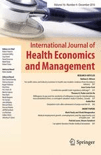
International Journal of Health Economics and Management
Advancing insights in health economics and management.International Journal of Health Economics and Management is a premier academic journal published by SPRINGER, focusing on innovative research at the intersection of health economics and management practices. Established in 2015, this journal caters to a diverse range of disciplines, integrating rigorous economic analysis with vital health policy discussions. With an impressive impact factor reflective of its influential publications, it holds a distinguished Q1 ranking in Economics, Econometrics, and Finance, and a Q2 ranking in Health Policy for 2023. The journal provides an open access model, enabling wider dissemination of research findings to academics, policymakers, and healthcare professionals globally. Researchers and students alike will find this journal invaluable for its commitment to advancing knowledge in health economics and improving healthcare management practices through empirical studies and theoretical insights. For more information, or to access articles, please refer to the journal's platform.

Exploratory Research in Clinical and Social Pharmacy
Uniting global expertise in clinical and social pharmacy.Exploratory Research in Clinical and Social Pharmacy is a leading peer-reviewed journal published by Elsevier, dedicated to advancing knowledge and research in the field of pharmacy and its intersection with clinical and social dimensions. Since its inception in 2021, the journal has carved out an essential niche in the academic community, as reflected by its strong impact factor and reputable category rankings, including Q3 in Health, Toxicology and Mutagenesis, Q3 in Pharmacology (Medical), and Q1 in Pharmacy as of 2023. The journal aims to disseminate innovative research findings, case studies, and reviews that address contemporary challenges and solutions within the pharmacy discipline, making it a vital resource for researchers, healthcare professionals, and students alike. With its emphasis on open access, Exploratory Research in Clinical and Social Pharmacy is committed to promoting inclusive and widespread expertise within the field, facilitating collaboration and knowledge transfer across global audiences. For its readers, this journal promises to be an invaluable tool for staying updated with the latest trends and advancements in pharmacy practice and research.

HEALTH TECHNOLOGY ASSESSMENT
Fostering multidisciplinary approaches to health technology assessment.HEALTH TECHNOLOGY ASSESSMENT is a prestigious open-access journal published by the NIHR Journals Library, focusing on advancing the science of health technology assessment through robust research and critical analysis in the fields of Health Policy and Medicine. Since its inception in 2001, this journal has fostered a multidisciplinary approach to evaluating health technologies, offering invaluable insights to researchers, healthcare professionals, and policymakers. With an impressive Q1 ranking in both Health Policy and Medicine (miscellaneous) for 2023, it stands at the forefront of academic discourse, reflecting a high-impact factor and an esteemed reputation within its respective categories. The journal not only publishes original research articles, but also reviews and case studies that illuminate the complexities of health technology in real-world applications. Established and based in the United Kingdom, HEALTH TECHNOLOGY ASSESSMENT strives to encourage evidence-based decision-making, making it an essential resource for anyone committed to enhancing healthcare outcomes through innovative technology assessments.
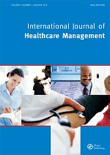
International Journal of Healthcare Management
Pioneering research for a healthier tomorrow.The International Journal of Healthcare Management, published by ROUTLEDGE JOURNALS, TAYLOR & FRANCIS LTD, stands as a crucial platform for the dissemination of innovative research and insights in the realm of healthcare management. With a focus on health policy, leadership, and management, this journal aims to bridge the gap between theory and practice, providing a valuable resource for researchers, professionals, and students alike. It boasts an impressive Q2 ranking in Leadership and Management and a Q3 ranking in Health Policy for 2023, highlighting its influence and relevance within the academic community. With an accessible ISSN of 2047-9700 and E-ISSN of 2047-9719, the journal features an array of peer-reviewed articles that promote the advancement of knowledge and best practices in healthcare settings. While currently not offered as open access, the journal publishes high-quality research that underscores the importance of effective management strategies in enhancing healthcare outcomes. Positioned in the United Kingdom, the journal continues to contribute significant knowledge and frameworks that guide healthcare leaders and policymakers in navigating the complexities of governance in health services.
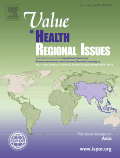
Value in Health Regional Issues
Fostering Multidisciplinary Collaboration in Health Economics.Value in Health Regional Issues, published by Elsevier, is an essential academic journal that addresses critical developments in the field of health economics, policy, and pharmaceuticals. With an impressive impact factor, this journal has established itself as a leading platform for disseminating innovative research, evidenced by its Q1 quartile ranking in Economics, Econometrics and Finance and Pharmacology, Toxicology and Pharmaceutics. Founded in 2012, the journal is dedicated to exploring value-based healthcare, focusing on regional perspectives that highlight economic implications and health outcomes. Covering a convergence of multidisciplinary themes, the journal fosters academic collaboration and provides researchers, professionals, and students with access to high-quality, peer-reviewed articles. As it continues to expand its scope through 2025, Value in Health Regional Issues remains a pivotal resource for those seeking to understand and influence health policy and economic frameworks on a regional, national, and global scale.

ClinicoEconomics and Outcomes Research
Innovating Healthcare Decisions with Economic InsightsClinicoEconomics and Outcomes Research is a prestigious open-access journal published by DOVE MEDICAL PRESS LTD, located in New Zealand. Since its inception in 2009, it has established itself as a vital resource for researchers and practitioners in the fields of economics, health policy, and outcomes research. With a commendable impact reflected in its rankings—Q1 in Economics, Econometrics and Finance and Q2 in Health Policy—the journal effectively bridges the gap between economic evaluation and healthcare delivery. This publication is particularly significant for those focused on the economic implications of health interventions, policy analysis, and decision-making processes in healthcare systems. As an open-access journal, ClinicoEconomics and Outcomes Research ensures that its valuable content is widely accessible, enhancing knowledge dissemination and fostering collaboration among academia, industry, and policymakers. With an ambition to contribute to the improvement of health outcomes through rigorous research, it invites submissions that address the multifaceted challenges facing the economics of healthcare today. Join the scholarly dialogue where innovative ideas in health economics thrive!
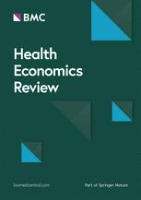
Health Economics Review
Navigating the complexities of health economics for better outcomes.Health Economics Review is a premier, peer-reviewed journal dedicated to advancing knowledge and research in the dynamic field of health economics and policy. Published by BMC, this Open Access journal has been a vital resource since 2011, providing a platform for scholars and practitioners to share their findings and insights on pressing health policy issues. With an impressive Q2 ranking in the Health Policy category and a Scopus rank of 113 out of 310, it reflects a solid standing within the academic community, capturing a 63rd percentile ranking that underscores its contribution to the field. The journal covers an extensive range of topics including health systems, economic evaluations, and policy analysis, making it essential reading for researchers, health professionals, and policymakers. Located in Germany, with an operational address at CAMPUS, 4 Crinan St, London, the journal is committed to fostering innovation and collaboration in health economics, thereby shaping a healthier future for all.
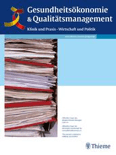
Gesundheitsoekonomie und Qualitaetsmanagement
Empowering Healthcare Professionals with Quality Management KnowledgeGesundheitsoekonomie und Qualitaetsmanagement, published by THIEME MEDICAL PUBL INC, serves as a vital resource in the field of health policy, particularly within the context of Germany. Since its inception in 1999, this journal has been committed to advancing the discourse on health economics and quality management, making significant contributions to understanding the complexities of healthcare systems. With an impact factor that reflects its ongoing importance, the journal is categorized in the Q4 quartile for Health Policy as of 2023, indicating its role in serving a niche yet crucial space in medical literature. Although currently not an open access journal, it remains accessible through various academic platforms, making its content available to a diverse audience of researchers, healthcare professionals, and students eager to engage with contemporary issues in health economics. With its publication continuing through 2024, Gesundheitsoekonomie und Qualitaetsmanagement is essential for anyone looking to deepen their understanding of the economic aspects of healthcare and ensure quality management in health services.
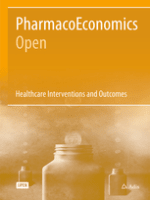
Pharmacoeconomics-Open
Empowering Healthcare Decisions Through Open ResearchPharmacoeconomics-Open, an esteemed journal published by SPRINGER INT PUBL AG, is a vital resource for scholars and practitioners in the fields of health policy and pharmacology. Since its transition to an Open Access platform in 2017, the journal has aimed to democratize access to valuable research, fostering innovation and collaboration globally. With notable rankings in the 2023 Scopus indices—including Q2 in Health Policy and both categories of Pharmacology—Pharmacoeconomics-Open engages with pressing issues in health economics, providing insights into cost-effectiveness analyses and healthcare decision-making. The journal’s commitment to high-quality, peer-reviewed articles ensures that it remains a significant player in advancing knowledge and understanding within its disciplines, serving as an essential forum for researchers, policymakers, and students alike.